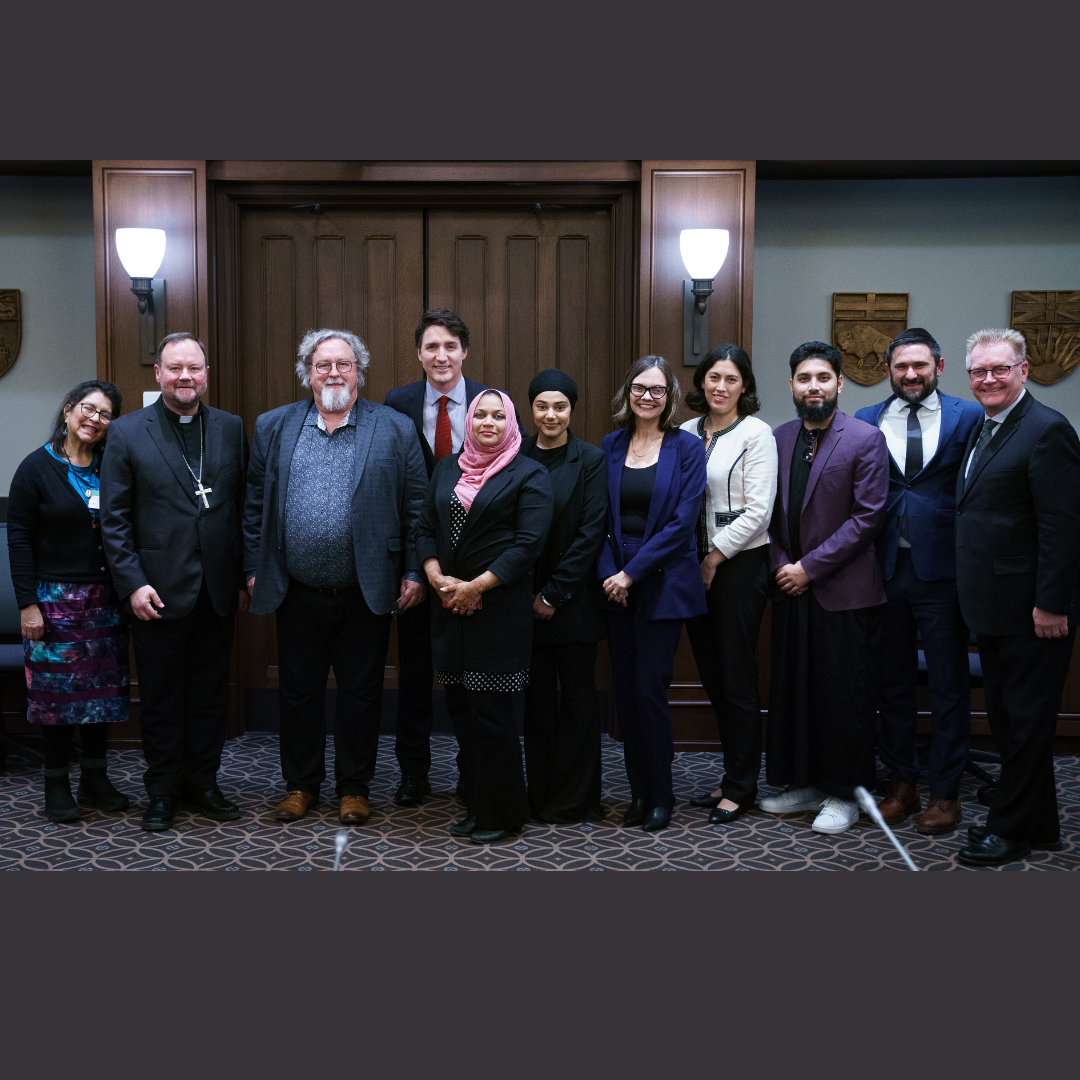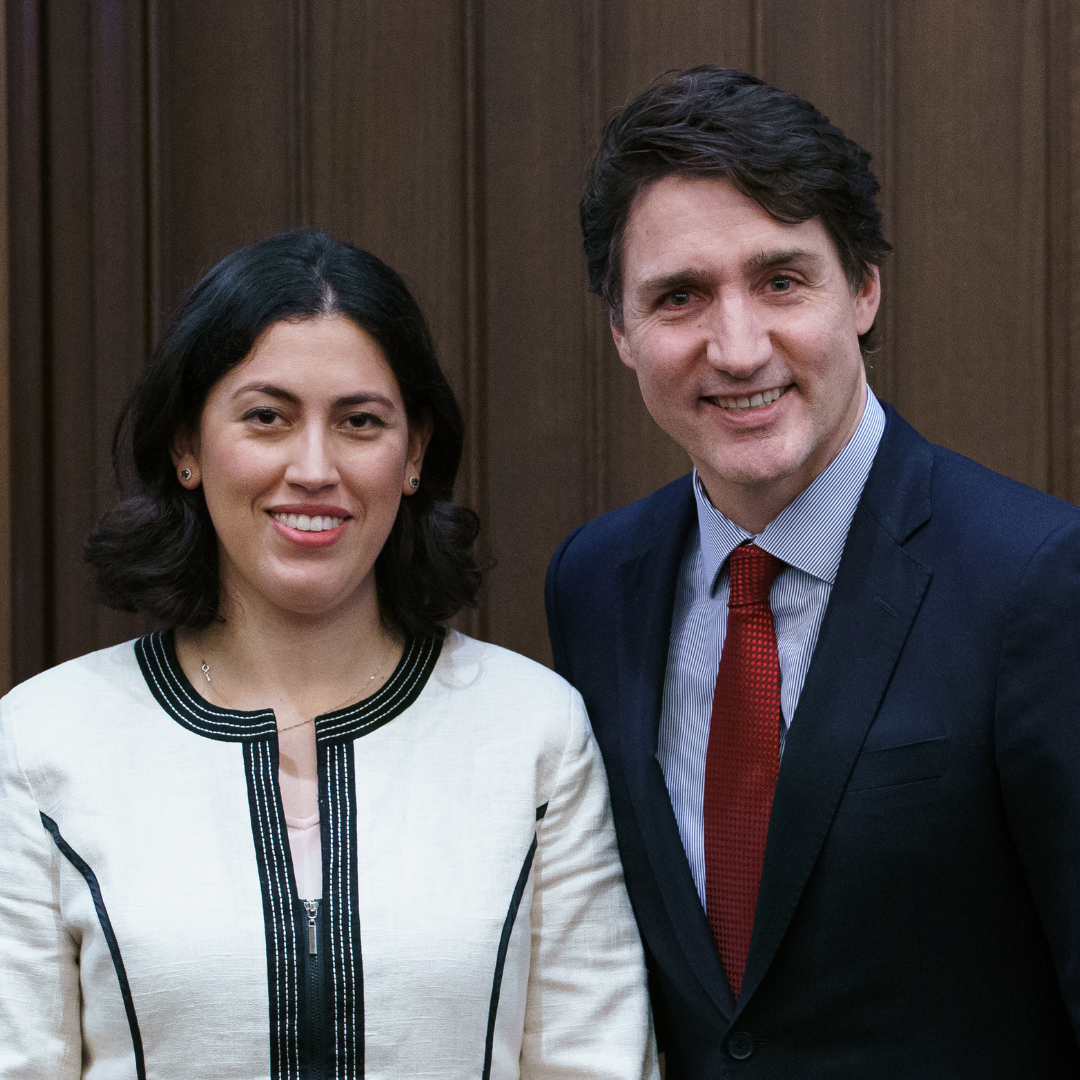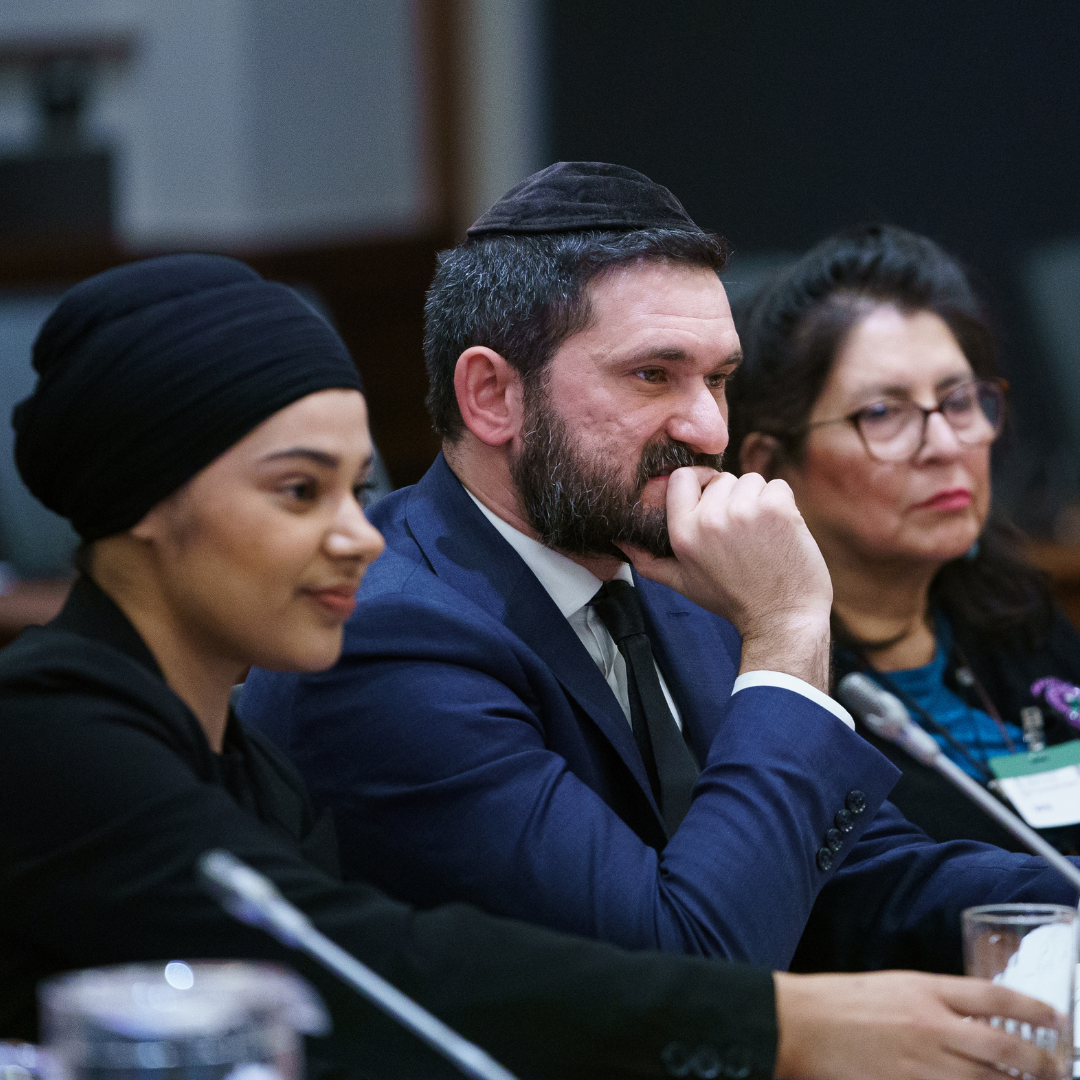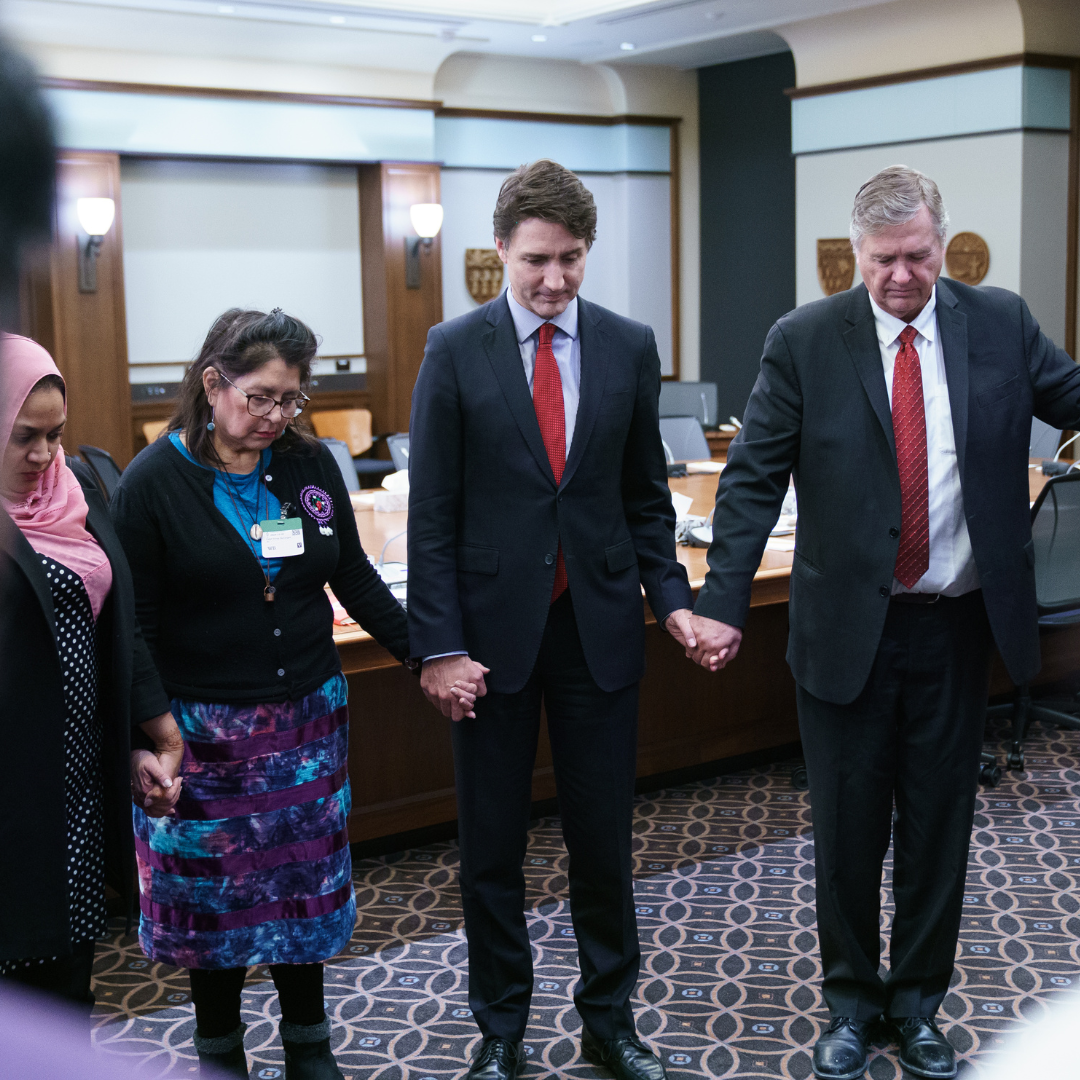Representatives from diverse faith communities discussed ways to address the rise in polarization and hate in Canada at a meeting convened by Prime Minister Justin Trudeau on December 10, 2024. The gathering, which was supported by the Canadian Interfaith Conversation (CIC), included ten representatives from the Baha’i, Christian, Hindu, Indigenous, Jewish, Muslim, and Sikh communities who were invited to share reflections on deepening divisions in Canadian society and identify instances of hope within their respective communities in addressing this challenge.




“The rise in polarization and hate in Canada is a complex social phenomenon. This meeting was an opportunity to explore how interfaith dialogue can be part of the solution” said Andrea Salguero, Director of the Baha’i Community’s Office of Public Affairs, who represented the Baha’i community of Canada at the gathering.
In his remarks, Prime Minister Trudeau underscored the importance for faith communities to turn to each other and work together as a response to the rise in incidents of hate. He noted the crucial role of faith communities in fostering peace in Canada’s religiously diverse society and emphasized that government policies and programs must be accompanied by the active support of religious communities themselves to be effective. He further added that meaningful interfaith engagement should not be limited to religious leaders but extend to the grass roots –between members of local communities across the country.
Faith representatives stated the importance of building bridges between faith communities, noting that the rise in polarization and hate affects people of all faiths and backgrounds. Some representatives acknowledged the challenges to collaboration posed by existing tensions between faiths groups, and the need to continue to overcome tensions through interfaith dialogue. Representatives also shared examples of constructive faith-based local initiatives such as food banks, chaplain services, and other charitable initiatives that are fostering hope in society.
The Baha’i Community’s contributions to the gathering described insights into creating spaces for belonging in neighbourhoods across Canada, drawing on its experience supporting grassroots educational programs that invite people of all faiths and backgrounds to work toward the betterment of their communities.
“We are learning that a sense of belonging, that feeling of deep connection an individual can have for their neighbourhood, and ultimately for the society in which they reside, is cultivated through action– by serving those around you alongside peers.” said Salguero. “When individuals can meaningfully contribute their talents and capacities to a collective good, a sense of belonging, spiritual purpose, and connection naturally arises”.
Salguero added that while a sense of belonging can be challenged by differences in views that naturally arise in the context of a neighbourhood, these differences need not lead to increased polarization or hate. “Creating spaces where the interconnected reality of a neighbourhood and the shared humanity of its residents can be explored in a meaningful way is essential” said Salguero. “This conversation, which has a deeply spiritual dimension, is what begins to address marginalization, and disenfranchisement in a locality. Particularly, when this conversation is accompanied by a regular pattern of working together.”
The gathering closed with prayer and an expressed commitment among the faith representatives to continue to engage in interfaith dialogue – echoing Prime Minister Trudeau’s comment that “finding ways to live together in peace is what Canada has to offer the world”.

